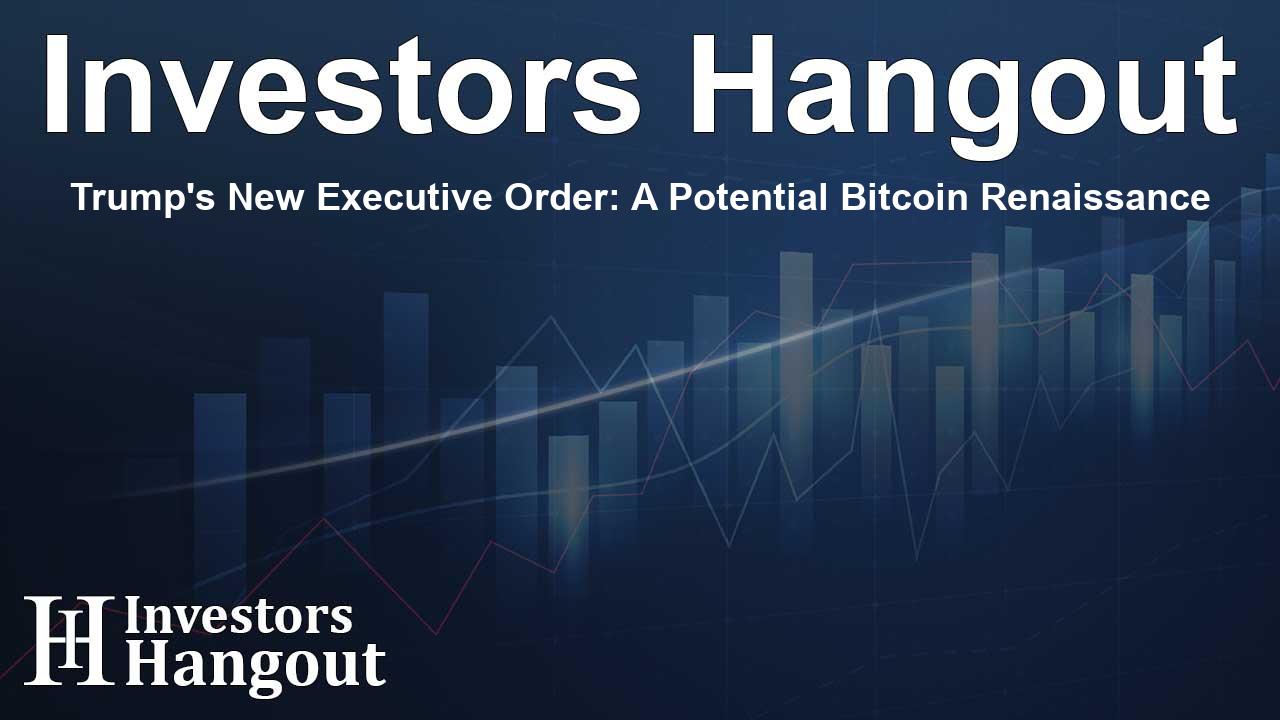Trump's New Executive Order: A Potential Bitcoin Renaissance

Understanding the New Executive Order on Retirement Accounts
President Donald Trump is making headlines with a bold initiative that aims to reshape retirement investing in the U.S. His forthcoming executive order seeks to open up 401(k) plans to a variety of alternative assets, including cryptocurrencies like Bitcoin, private equity, and real estate. This could be a game changer in the way Americans plan for their futures.
The Potential Shift in Retirement Investing
The proposed directive is geared towards allowing alternative investments within 401(k) retirement accounts, which represent a substantial segment of the $12.5 trillion defined-contribution market. This move reflects a strategic effort to expand investment options for workers at all levels, potentially enhancing their investment returns.
Regulatory Review Process
According to rumors circulating in reputable financial news outlets, the executive order will instruct the Department of Labor to reassess current regulations concerning retirement accounts, particularly under the Employee Retirement Income Security Act (ERISA). The department's review will involve a detailed analysis of how best to incorporate alternative assets into asset allocation funds while taking into consideration the fiduciary duties of plan sponsors.
Collaboration Among Government Agencies
The plan is expected to require Labor Secretary Lori Chavez-DeRemer to collaborate with the Treasury Department, the Securities and Exchange Commission (SEC), and other financial regulators to propose necessary rule changes. The SEC will prioritize facilitating access to these alternative asset classes for individuals participating in self-directed retirement plans.
Implications for Asset Managers
This initiative is viewed favorably by both traditional and alternative asset managers, who see an opportunity to unlock the potential of defined-contribution plans. Asset managers, especially institutional investors, face challenges such as limited allocation options in private equity due to reduced deal flow and prolonged exit timelines. As a result, expanding into alternative investments could diversify portfolios and enable better financial stewardship.
Advocacy and Opposition
Supporters of this policy change argue that providing 401(k) holders with non-traditional investment opportunities can lead to more substantial long-term returns and a wider array of choices. However, skeptics caution against the potential risks associated with increased exposure to alternative assets, including higher volatility, liquidity challenges, and potentially elevated fees that could result in legal ramifications for employers if investments do not perform as expected.
The Context of Cryptocurrency Regulations
The backdrop of this significant policy shift coincides with Trump's increasing involvement in the cryptocurrency space. Recently, he proposed legislation that began to regulate stablecoins and appointed a dedicated crypto and AI advisor, highlighting the seriousness with which his administration is approaching this evolving market. His administration has launched initiatives like a Strategic Bitcoin Reserve and put less pressure on major crypto firms regarding regulatory compliance, which protects innovation within the sector.
Economic Impact and Predictions
Trump's personal ventures into the world of cryptocurrency have reportedly added over $600 million to his net worth, with activities ranging from digital collectibles to innovative tokenized platforms. This executive order could thus have far-reaching implications not only for ordinary Americans saving for retirement but also for the broader cryptocurrency market.
Conclusion
As the discourse around retirement investing evolves, President Trump's executive order could revolutionize how individuals view their retirement options, especially regarding cryptocurrencies like Bitcoin. The discussions and decisions made in the coming months will likely define the future landscape of retirement investing in the U.S.
Frequently Asked Questions
What is President Trump's new executive order about?
The order aims to incorporate alternative assets, including cryptocurrencies, into 401(k) retirement plans, reshaping retirement investment opportunities.
How will this affect traditional retirement accounts?
The inclusion of alternative investments could offer workers enhanced diversification and potentially higher returns, but may also introduce new risks.
Who will oversee the implementation of this order?
The Department of Labor, working alongside the Treasury and SEC, will review existing regulations and propose new rules for incorporating alternative assets.
What are the criticisms of allowing cryptocurrencies in 401(k) plans?
Critics express concerns about increased risks, less liquidity, and potential legal issues for employers should investments perform poorly.
What is the expected timeline for these changes?
While no specific timeline has been set, the changes are anticipated to unfold as the Department of Labor coordinates with relevant financial regulators.
About The Author
Contact Logan Wright privately here. Or send an email with ATTN: Logan Wright as the subject to contact@investorshangout.com.
About Investors Hangout
Investors Hangout is a leading online stock forum for financial discussion and learning, offering a wide range of free tools and resources. It draws in traders of all levels, who exchange market knowledge, investigate trading tactics, and keep an eye on industry developments in real time. Featuring financial articles, stock message boards, quotes, charts, company profiles, and live news updates. Through cooperative learning and a wealth of informational resources, it helps users from novices creating their first portfolios to experts honing their techniques. Join Investors Hangout today: https://investorshangout.com/
The content of this article is based on factual, publicly available information and does not represent legal, financial, or investment advice. Investors Hangout does not offer financial advice, and the author is not a licensed financial advisor. Consult a qualified advisor before making any financial or investment decisions based on this article. This article should not be considered advice to purchase, sell, or hold any securities or other investments. If any of the material provided here is inaccurate, please contact us for corrections.
